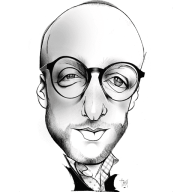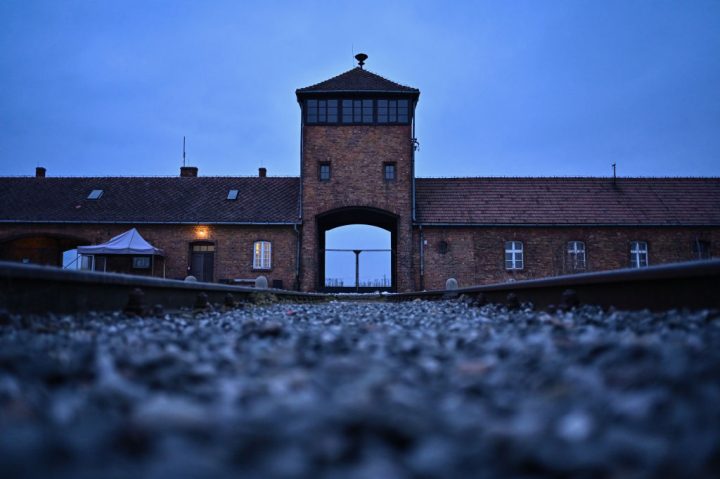At the heart of marking the Holocaust lies a conundrum. On the one hand, genocides happen all over the world, from Cambodia to Darfur. Each life lost is an equal horror; there can be no hierarchy of death. On the other, the attempted liquidation of world Jewry during the second world war was an entirely specific atrocity. It was an expression of mankind’s oldest hatred by the most advanced civilisation on Earth, using the most sophisticated science, technology, logistics and propaganda at its disposal. It was unique. It was about the Jews.
Clearly, balance is required. But it seems in short supply. Today is Holocaust Memorial Day. My teenage children have been learning about it all week at their school, a comprehensive in Winchester. After several classes and an assembly on the subject, the main point my son brought home was this: ‘I never realised that Holocausts have happened all over the world and still happen today.’
Is it only the Jews who are expected to share the ownership of their history?
I couldn’t believe my ears. Of course, the persecution of gay people, Roma and those with disabilities must be properly memorialised. But the core genocide was about the Jews.
The years of Nazi propaganda to lay the groundwork for the final solution was about the Jews. The age-old antisemitism upon which it drew was about the Jews. The final solution was about the Jews – an effort to obliterate them as a people, as a culture, as a race, as an artistic and scientific force, as holders of their own languages, their own humour, their own recipes and music and tastes and traditions, their own values and their own history, their songs and their blessings, as families, as individuals, as holders of a rich and colourful faith and as genetic inheritances, as human beings composed of bones, flesh, blood and hair. It was an attempt to steal everything, to destroy everything. It was an attempt to erase us and it only partially failed.
As the Jewish author Ben Judah writes in the Jewish Chronicle this week, we must remember not just the way they were killed. We must remember the vanished way they lived. He recalls a visit to the Polin museum in Warsaw which included a reconstruction of the painted ceiling of the synagogue in Gwodziec, Poland, which was razed in 1942. ‘There were signs of the Zodiac, dancing beasts, floral patterns and geometric wonders lacing around our flame alphabet and the kind of swirls I’d associate more with a Tibetan mandala,’ he writes. ‘This looks nothing like a synagogue, I thought, until I felt a tightening pain. This is what the synagogues they destroyed used to look like.’
That was the meaning of the Shoah. It was about the Jews.
Set up by the Blair government, Holocaust Memorial Day does not only commemorate the Holocaust. It also marks other genocides that have seen successful international prosecutions: Rwanda, Darfur, Cambodia, Bosnia. Instead of calling it Genocide Memorial Day, however, the Holocaust is taken to umbrella them all, making it one tragedy among many. Without its own name, there is no longer language to describe the specifically Jewish catastrophe. In dark moments, it feels as if the Jews are being erased again by way of euphemism and candles.
Of course the Blair government wanted to make the Holocaust multicultural! Belatedly, yet too dimly, aware that something didn’t feel right, that administration gave representatives of Jewish groups seats on the Holocaust Memorial Day Trust (HMDT) board, assigning them the task of protecting their people against – not liquidation – dilution.
It is true, of course, that all genocides bear similarities, and no death is more tragic than any other. The HMDT talks about the ‘ten stages of genocide’, which begin with classification into ‘us and them’ and end with denial. Maybe all genocides do follow this pattern. But why must this erase their particularities? Unthinking universalism, ham-fisted inclusion, bovine tolerance; these things embody their opposites. They erode the identity of their victims. Sometimes I wonder how the Rwandan officials feel, deep down, when they light a candle for their dead on a day named after the Jewish Holocaust but divorced from it. But this is an event in Westminster and they go along.
Invitations to mark the Holocaust and ‘all other forms of genocide’ cannot help but evoke Jeremy Corbyn’s ‘all other forms of racism’, which reflexively marred all of his statements supposedly condemning antisemitism. He just couldn’t bring himself to do it. He couldn’t bring himself to see Jews. And if nobody sees you, it becomes difficult to see yourself.
Remembering your own dead is not the same as discriminating against the dead of others. In fact, it is the personal grief that provides the template by which the grief of others can truly hit home. Remove the one and you remove the other.
Take the Cambodians. Do they commemorate the Jews of Europe when remembering the atavistic massacres carried out by the Khmer Rouge in the Seventies? Do the Sudanese mourn the victims of Auschwitz when they memorialise the 80,000 Darfuris butchered in 2003? Do the Bosnians include Warsaw, or Lodz, or Rhodes, when they mark the atrocities of Srebrenica? Or is it only the Jews who are expected to share the ownership of their history? This is a question to which we all know the answer.






